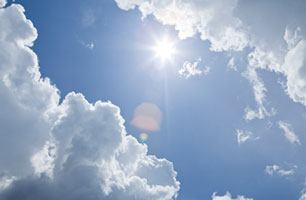
Getty Images
The start of summer officially kicked off on Tuesday at 1.16 pm ET with the beginning of the summer solstice and the Northern Hemisphere’s longest day of the year. That day, the Northern Hemisphere absorbed more sunlight than it has or will have on any other day of 2011. Our planet will release that sunlight in the coming weeks in what will hopefully not be a repeat of summer 2010 – the year of record-high summer temperatures in the Northeast – because if this forthcoming study in Climatic Change is anything to go by, scorching temperatures this summer could bring a lot worse than sweaty brows and frizzy hair.
The study, conducted by scientists at the University of Wisconsin-Madison, Purdue University and the National Center for Climatic Research, identifies a number of illnesses and health conditions exacerbated by unrelenting heat, including diabetes, urinary tract and renal diseases such as kidney stones, respiratory conditions, accidents and even suicide attempts. For every 2 degrees the mercury in your thermometer rises over 85 Fahrenheit, hospital admissions for conditions such as diabetes and kidney disorders are predicted to rise by 13 percent.
“Unlike previous studies, we identified threshold temperatures for several health outcomes beyond which disease rates will increase rapidly,” Bo Li, the lead author of the study, said in a statement.
The researchers also forecast increased incidence of heat-sensitive illnesses and conditions in tandem with predicted warming and its accompanying intense and frequent heat waves for the years between 2059-2070. Hospital admissions for heat-related conditions under one well-studied climate change scenario will increase by seven percent over time, according to the study’s senior author Jonathan Patz, and hospitals and public agencies will need to plan accordingly. And stay inside with the air-conditioning on if you’re under five or over 85 – the study found that the very young and the very old are at the biggest risk for hospitalization during heat waves.
The study, which utilized meteorological, air pollution, and hospital admission data for the years 1989-2005 for the city of Milwaukee, was supported by the U.S. Environmental Protection Agency under its STAR Grant Program.


